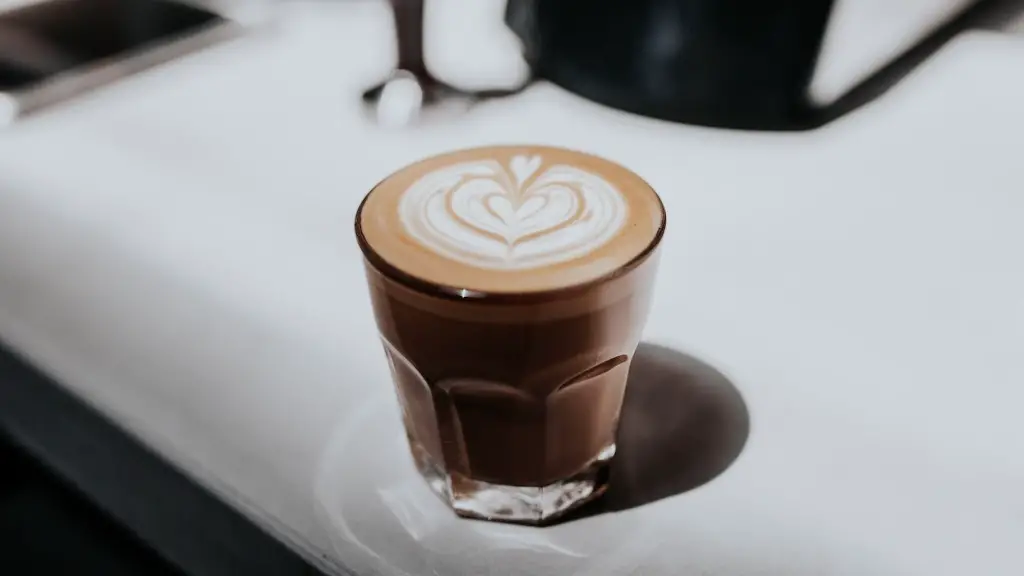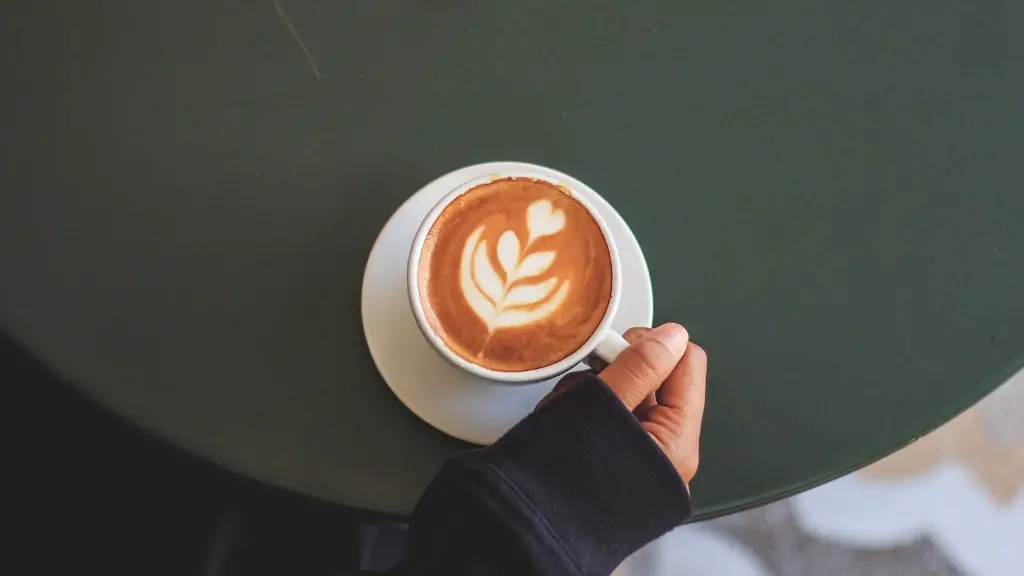Caffeine and Sleep Quality
Even though coffee is enjoyed by many around the world, it can have some adverse effects on one’s sleep and health. Coffee is a stimulant that contains caffeine, and it has been widely recognized for its ability to help individuals stay more alert and focused. Caffeine works on the brain by blocking adenosine, a hormone that makes us feel sleepy and decreases our alertness.
Studies have shown that caffeine can interfere with the body’s natural sleep-wake cycle and can adversely affect sleep quality and duration. For example, a 2017 study published in the journal Nutrients found that consuming 400 milligrams of caffeine after 5:00 pm was associated with significantly impaired sleep quality. The participants reported longer sleep latency, poorer sleep quality and lower overall current sleep satisfaction than when they had less or none of the caffeine at that time.
However, this doesn’t mean that drinking coffee before bed is automatically bad. It all depends on individual tolerance levels, since some individuals may be more sensitive to the effects of caffeine than others. Furthermore, the amount of caffeine consumed plays a role in determining how much it will affect sleep. The amount of caffeine in a cup of coffee can vary significantly, ranging from 40 to over 200 milligrams, depending on the style of brew and the brand. Light roast coffees are generally lower in caffeine than dark roast, and espresso has the highest amount in comparison. Generally, lighter brews (e.g. tea) have less caffeine than dark roast coffee.
According to Dr. Michael Breus, Clinical Psychologist, “Coffee right before bed may decrease your overall sleep quality, particularly if it’s consumed in the evening [or] at night. It’s recommended that you do not consume drinks or foods containing caffeine 4 to 6 hours before bedtime.” Additionally, if you are having trouble sleeping, it is advisable to limit or avoid caffeine altogether.
The Effects of Coffee on the Body
It is not just drinking coffee in the evening that can impact our sleep quality. High doses of caffeine can disrupt our body’s hormonal balance and our natural circadian rhythm, leading to issues such as insomnia, restlessness, and irritability. High doses of caffeine can also cause blood pressure to temporarily spike, which can be dangerous for individuals with heart disease or high blood pressure.
Moreover, caffeine consumption can trigger or worsen other health conditions, such as irritable bowel syndrome, headaches, and anxiety. Individuals with anxiety or panic attacks should thus take extra care not to consume too much caffeine, since high doses of caffeine can trigger anxiety and make it worse. Caffeine may also affect fertility in women of childbearing age since it can increase the risk of miscarriages and lead to delayed conception.
Caffeine’s effect on health isn’t just limited to its impact on sleep. Long-term consumption of high amounts of caffeine has been linked to an increased risk of developing type 2 diabetes and cardiovascular disease, including high blood pressure and stroke. Furthermore, consistent caffeine use can lead to addiction, tolerance, and withdrawal symptoms such as headaches, fatigue, and irritability.
Are There Any Benefits of Drinking Coffee Before Bed?
Coffee does have some potential benefits, especially when consumed earlier in the day. Moderate daily doses of caffeine can help improve alertness, concentration, and memory. It can also help reduce the risk of developing certain types of cancer, type 2 diabetes, and Parkinson’s disease.
Moreover, caffeine can boost metabolism and increase fat burning. It can also help to suppress appetite and reduce food intake, which can be beneficial for people who want to lose weight. However, it is best to consume coffee during the day, since night-time consumption may cause improper sleep and disrupt the body’s natural circadian rhythm.
Finally, drinking coffee before bed may be beneficial for people suffering from sleep disorders, such as sleep apnea. According to one study, caffeine before bed can significantly reduce the severity of sleep apnea symptoms. Therefore, it is best to discuss the issue with a physician to determine whether drinking coffee before bed is a suitable option.
Coffee Alternatives to Improve Sleep Quality
If you are looking for alternatives to coffee for a better night’s sleep, there are a few options to consider. Herbal teas like chamomile, ginger, jasmine, or peppermint can help improve sleep quality without the caffeine. A mug of warm milk also works, as it contains natural substances called tryptophan that can help induce sleep.
For individuals who prefer something sweeter, decaffeinated coffee or hot chocolate can be an option. Additionally, there are several other beverages on the market that are specifically designed to help with sleep, such as SleepyTime Tea or Sleep Well Tea.
Finally, if you are looking for a natural way to improve sleep quality, essential oils like lavender, ylang-ylang, and chamomile can help soothe the senses and relax the body before bed.
The Effects of Sleep Debt
Drinking coffee too close to bedtime can be detrimental to your health, as it can impair your sleep quality, reduce morning alertness, and weaken your immune system. Over time, this can lead to sleep debt, which is the cumulative effect of chronic sleep deprivation.
Sleep debt is not just the effect of just one night of missed sleep — it is actually the result of a week or more of poor or inadequate sleep on a regular basis. Its effects can be seen in the form of impaired judgment, fatigue, irritability, decreased alertness, increased risk of accidents, mood changes, and so on.
These effects can be quite serious and can significantly increase the risk of developing long-term health conditions, such as obesity, diabetes, heart disease, and even certain types of cancer. Therefore, if you are having trouble sleeping, it is best to limit or avoid caffeine altogether.
Coffee Afternoon Pick Me Up
If you need an afternoon pick-me-up, there are plenty of caffeine-free options to choose from. Energy drinks, such as Monster or Red Bull, are a good alternative for those who need a quick boost of energy. They often contain natural sugar and amino acids that can give you a mild buzz without making you jittery.
For those who don’t like energy drinks, there are a number of caffeine-free herbal teas on the market. Green tea is also a great option, as it contains natural antioxidants and can help improve alertness and focus. Finally, for a more natural pick-me-up, you can try fruits like apples, bananas, or oranges, which are all good sources of natural sugar and electrolytes.
Additionally, there are certain strategies that can help improve alertness and focus during the day, such as getting outside for a walk or getting enough sunlight for a few minutes. Exercise is also a great way to increase alertness, as it helps to improve circulation and can boost energy levels.
Improving Sleep Hygiene
Finally, if you are having trouble sleeping, it is important to take steps to improve your overall sleep hygiene. This includes avoiding activities that might interfere with your sleep and focusing on activities that can help promote relaxation, such as taking a hot bath before bed or reading a book. Additionally, it is important to maintain a regular sleep schedule by going to bed and waking up at the same time every day.
In addition, it is advised to limit exposure to blue light at night, as it can suppress melatonin, the hormone responsible for regulating the body’s natural circadian rhythm. Blue light is emitted from electronic devices like smartphones, computers, and TVs, so it is best to avoid looking at these screens for at least an hour before bed.
Finally, it is also important to avoid consuming caffeine and alcohol at night, as both can significantly impact sleep quality. Alcohol may initially help produce drowsiness, but its effects can wear off after a few hours, leading to restlessness and difficulty falling asleep.





